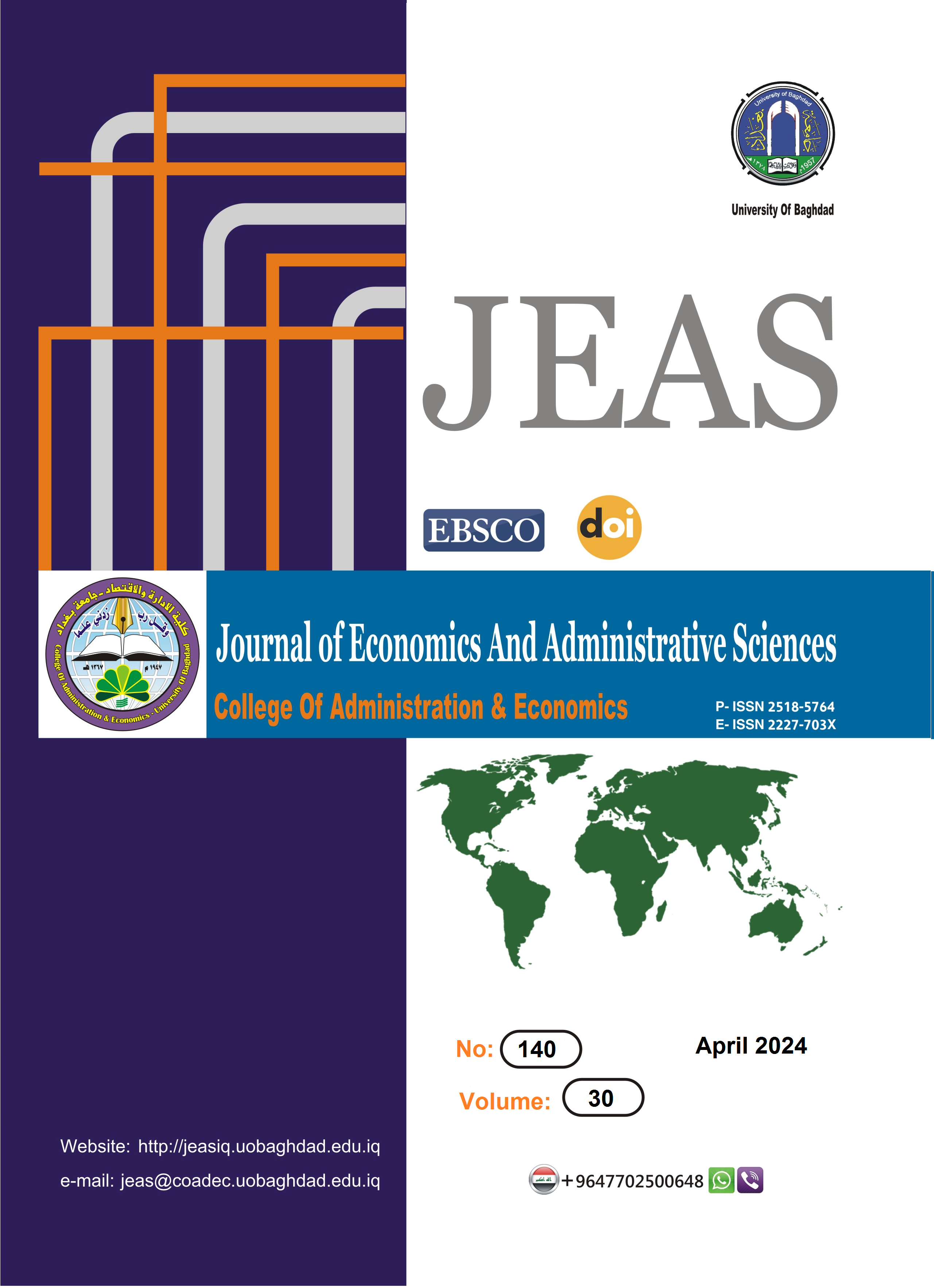The Reflection of Organizational Citizenship Behavior on Knowledge Sharing : An Applied Research in The Baghdad Al-Karkh Health Department
DOI:
https://doi.org/10.33095/md0hyt92Keywords:
: Organizational citizenship behavior, knowledge sharing.Abstract
The objective of the study is to assess the degree of knowledge sharing and diagnose organizational citizenship behavior and explain the existence of a correlation between organizational citizenship behavior with its dimensions(altruism, consciousness of conscience, politeness, voluntary participation, and sports spirit) and knowledge sharing with its dimensions (enjoyment in helping others ,competent self-knowledge, senior management support, organizational incentives, and information as well as communication technology). Targeting 846 employees who work at the department's headquarters. The study has been carried out in Al-Karkh Health Department. With the use of a specific method for random sample selection, the 264 research participants were divided across the divisions and areas of the department. The assumes that organizational citizenship behavior and information sharing inside the Al-Karkh Health Department are correlated and have an impact on each other. The research sample was given a questionnaire to fill out to collect data to collect data. With the use of programs AMOS and SPSS, several statistical techniques have been applied to anaylse data including arithmetic mean, standard deviation, and the coefficient of variation. The study's key finding most important results that there is an influence between the factors under investigation.
Paper: Research paper.
Downloads
Published
Issue
Section
License
Copyright (c) 2024 Journal of Economics and Administrative Sciences

This work is licensed under a Creative Commons Attribution-NonCommercial-NoDerivatives 4.0 International License.
Articles submitted to the journal should not have been published before in their current or substantially similar form or be under consideration for publication with another journal. Please see JEAS originality guidelines for details. Use this in conjunction with the points below about references, before submission i.e. always attribute clearly using either indented text or quote marks as well as making use of the preferred Harvard style of formatting. Authors submitting articles for publication warrant that the work is not an infringement of any existing copyright and will indemnify the publisher against any breach of such warranty. For ease of dissemination and to ensure proper policing of use, papers and contributions become the legal copyright of the publisher unless otherwise agreed.
The editor may make use of Turtitin software for checking the originality of submissions received.

























